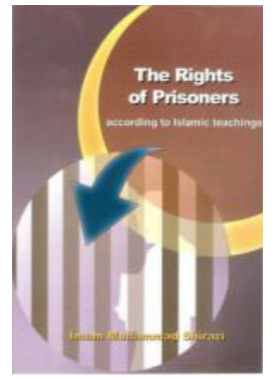
The Rights of Prisoners according to Islamic teachings In general, Islam considers imprisonment as a case of last resort in many circumstances, however, according to Islamic teachings there are only a few offences that would lead to imprisonment. Under non- Islamic system, of course the offender should be reprimanded, but any chastisement prescribed by Islamic teachings may only be implemented if all the relevant criteria and the preconditions prescribed are also met. If the criteria are not met, then the prescribed punishment may not be executed.
In this book the author addresses such issues as the fundamental nature of freedom, the rights of prisoner, and the harmful effects of imprisonment on the individual concerned as well as on society, and the kind of offences that would lead to imprisonment under an Islamic system. The author also cites a few cases to demonstrate the attitude the Islamic ruler should take towards offence; to try to find reasons to waive the punishments in any particular case. The author also addresses the issue of torture in general, and mental and physical ill treatment that is carried out under the guise of interrogation and extracting confession from a detainee or a suspect.
This brief work presents the teachings of Islam with respect to the rights of those when imprisoned, and shows that the teachings of Islam are designed, by the designer and maker of mankind, for the benefit of mankind wherever he may be.
Table of Contents
Foreword V
Chapter 1: Freedom – a fundamental principle 1
Chapter 2: Torture and prisons must be purged 7
TORTURE IS AN UN-ISLAMIC PHENOMENON 7
MEANS OF DISCOVERING THE TRUTH 8
EXPOSING TORTURE AND ILL TREATMENT 12
NO TO PRISONS AND DETENTION CENTRES 13
WHO IS IMPRISONED IN ISLAM 13
THE DISADVANTAGES OF PRISONS 14
Political Harm 14
Social Harm 15
Economic Harm 15
Educational Harm 16
Health Harm 16
Other harmful effects of imprisonment 16
Chapter 3: Islamic penal law – criteria for implementation 19
CRITERIA FOR EXECUTING THE PENAL LAW 23
Correctness and validity of Government 23
Circumstances of the offender and the offence 24
Validity of the offence under Islamic law 29
When can prescribed punishments be carried out? 33
Chapter 4: Rights of a prisoner 36
Prison categories 47
Traditions and customs of the new judge 48
Chapter 5: Rulings 51
Imprisonment 51
Confinement 52
Torture 53
Fasting and hunger strike 54
The rights of prisoners according to Islamic teachings